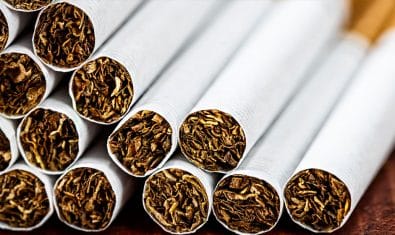
One can get the magnitude of our dependence on foreign oil from the fact that our oil imports are expected to reach 6.5 billion dollars this year.
Tackling this issue head-on, the SCME (School of Chemical and Mechanical Engineering) school of NUST (National University of Engineering and Technology) has unveiled biodiesel made from the Jatropha plant.
Oil is extracted from the Jatropha plant seeds and processed to get the biodiesel. Here’s what makes this particular biodiesel special:
- The Jatropha plant is cultivable practically anywhere.
- One acre of Jatropha plant farms is sufficient to make 2000 liters of biodiesel.
- The biodiesel is clean burning and the process inherently removes a lot of impurities.
The price to make a liter of biodiesel is Rs. 25. Compare that to the current prices and one can realize the importance as well as the potential of this breakthrough. As for the fuel standing the test of real world use, most generators and vehicles in NUST are already running on the biodiesel with no issues at all.
As well as pioneering this practically implementable technology, NUST has maintained a model farm that covers an area of 15 acres for Jatropha cultivation. Keeping in mind the enormous potential of this project, half a million Jatropha trees have already been planted with plans to plant 4-5 million trees this year.
Projects like these show that there is no lack of talent in our country and there are people who can tackle the very issues our country is facing right now.
If the potential of this breakthrough is fully utilized by the government (through large scale production), it could result in a significant decrease in our oil import bill as well as give our people a relief from the rising fuel prices.
The ball is in the government’s court now. Let’s see how they deal with it.


























WOW! Now let us see some industrialists, politicians, big wigs etc jumping onto this opportunity. I am sure there would be man y entrepreneurs out there waiting to cash on this great achievement. Bah, only if the baboos allow it
What ever 1st it was Dr. Samar now NUST. we will believe it when we see it
you can check the video on youtube, if you don;t believe it
Bravo!!!
anxious to see the practical implementation.
It is indeed pleasing news that we can produce bio-diesel by our own resources. I am an agriculturist and consume around 30000 liters of diesel in a year. I shall be thankful if complete detatils beside growing plants like extraction and processing are provided with.Diesel is considered to be one of the integral inputs for any grower regardless he is small,medium or large land holder. Prompt response shall be highly appreciated.
You don’t have to do any special thing. Its more like a cultivate and forget type plant. Gives seeds twice a year, best production is when the plant is 4-5 years old. Once you get the seeds all you have to do is take the oil the way you do from Canola. If you want to refine it, its your choice, otherwise pour and use.
.
p.s. if you need any other specific details, I will ask our agriculturist. They have cultivated it in FATA.
One acre makes 2,000 liters. The cost to make one liter is Rs 25. That means Rs 50,000 per acre. But I am pretty sure that does not include cost of keeping the farm running (water, fertiliser, paying farmers etc).
There is no “natural” fuel on earth which gives the same performance-price as oil underground. The danger of biodiesel is that people will start farming for it instead of farming for wheat or rice or other needed crops. We already have a situation where countries like Saudi Arabia have leased large parts of Pakistan farm land to grow food for themselves. Now we will have a problem with people deciding to grow fuel instead of food because they can make more money (as price of oil goes up, this fuel will become more and more attractive compared to oranges or rice or whatever).
“There is no “natural” fuel on earth which gives the same performance-price as oil underground. The danger of biodiesel is that people will start farming for it instead of farming for wheat or rice or other needed crops.”
.
.
Inter cropping….
Also Jetropha sheds leaves which is good for the soil its planted on.
Never be fooled by army led any institution, they are always mirages and glitters they show. But always turns our to be hollow statements
I beg to differ with Mr. Shahid Saleem It is true that food security plans and its implementations are great concern of almost every country of the world. But at the same time, we can see significant development in the area of alternative energy, fuel and gas. I am producing biogas at my farm which is sufficient for domestic gas cosumption like kitchen equipment geysers heaters etc. Besides this I use this source to operate 20 kva power generators in case of load shedding which is now way of life in southern Punjab. It is one time capital expense and there is no re-occurring expense and I fulfill my Gas and electric needs with ZERO expense.
Similarly, we can talk about food security plans once we are able to run our tractors and tube wells at lower cost. In present scenario, agriculture sector in Pakistan is no longer profit taking business where a grower has to purchase all in puts on international prices and crops rates are determined by babus who are sitting in air-conditioned offices and have least knowledge about ground realties.
There are many countries like Argentina, Australia, Brazil, Belgium, Cambodia, Canada, China, France, Germany, India , Mexico ,Malaysia, UK and USA etc which are not only meeting domestic needs but exporting biodiesel to other countries as well. Thus, Biodiesel is an emerging phenomenon and Pakistan must give maximum attention to such project which as consequence will provide cheaper fuel source to the consumer at one hand and save huge amount of foreign exchange being spent on oil import bills. Well done NUST- keep it up.
Okay I have to ask: how do you generate biogas without incurring any expenses (other than your one-time cost which I guess is installation and setup)? I have a personal reason for asking because I wanted to use wind power for my grandmother’s farm but that did not turn out to be viable alternative. There are no animals on the farm, just fruit trees and vegetable plants.
I think the food problem is real. We can just look over the border to see the effect of different types of crops. Afghanistan has lots of farm land and can probably export wheat but because opium makes more money, they export that and import wheat from us. Biofuels can be made from corn and sugar cane, so imagine what situation will be when sugar mills decide they can make more money from biofuel than they can from selling sugar to consumers.
Yes, we can make good case for “fuel security” but I am skeptical that biofuel is the answer.
As a farmer you know that fertiliser uses phosphates and nitrates. We always hear of “oil peak” but there is also “phosphate peak” and we will probably hit that within ten years. After that, it will cost a lot more to fertilise farms than it does today. When I was in school studying world geography we used to read of farms in Africa where people would leave 1/4th of the farm “fallow” for several years to let the ground build up nutrients. But who does that in Pakistan now? On my grandmother’s farm, all of the area is in use for different kinds of fruits and vegetables. They just rotate some of the plants sometimes but they depend on fertiliser.
Biofuel farms will also compete with food farms for such farming chemicals.
Dear M.S.Abbasi,
you’ve mentioned that you are producing biogas at your farm which is sufficient for domestic use… can yo please share the procedure in detail?
Regards!
I suggest NUST people to upload complete details in order to ascertain the viability of the project.
It is very simple set up. you need one under ground stell tank for fermentation and production of gas. Fill this tank with cattle dung to certain level add some water and coner it with steel cap. it will start producing gas within 4/5 days. connect your gas pipe line with its out lat and enjoy. you have to add certain quantity of cattle dung according to tank size on daily bases.
if you intend to operate generator by this gas then you have to install overhead pressure tank with small and light duty compreesor. you can run generator of any capacity by this gas. regards.
Itis your point of view in respect of biodiesel which is your fundamental right. I respect your views and feel un-necessary to engage myself into any counter productive debate.Regards.
Well…Its the Same Project Like Ours in 2010 during chemical engineering graduation ” titles 100000 tons/year production of biodiesel from jathropa Oil”. I ll upload the flowhseet..!
We are using Jathropa because it requires no water to grow. Can be easily cultivated in Land Areas Like Layyah etc of Pakistan
Well we were not from a well recognised university dats why we are not here as Nust students design report and project is discussed Here
Chemical Engineers 06
NFC Institute of Engineering and Fertilizer Research
No matter,to whom University U belong.It is the kwnoledge which strengthen the ideas.If you please make a phone call conversation with me.or emial at my address.
[email protected]
Regards saeed
Its a Renewable Source of Energy and Produces less environmental Hazards Like NOX etc…But No one is available for us to get us employed…..!
More the CROPS more will be the Fuel. The Main Advantage is that we dont need to change the construction and design of existing engines , the produced biodiesel can be used easily in current engines without any modification to them
But the Main aspect is that no one is here to encourage the students who have completed their degrees and are still unemployed…..
Yasir Hussain Syed
Chemical Engineer
NFC IEFR Faisalabad
You are right Mr.Yasir that unemployment is the main evil and curse in Pakistan. we can work out some plan to do this project jointly if you are capable to produce following basic input that;
1-What is the cost of plantation per acer?
2-How many plants to be planted in an acer?
3-Fruiting/Maturity time?
4-Details of extracting and processing mechnism?
5-Storage arrangement?
6-Inputs required till the maturity of crop.
7- life span of plant?
Looking forward your response eagerly. Regards!
1- When we imported it it cost around $3 per cutting. Now a days you can get a plant (Indian variety) in Peshawar area for Rs. 30-40.
.
2-Estimated plantation per acres is: 540 plants/acre. Its planted in a 9×9 formation, do the math for your fields.
.
3- Well our fields started production the very first year but was not commercial. Takes around 3-4 years to mature.
.
4- No special processing/extraction is required. Extract the oil the way you do from Canola/other local plants.
.
its 37% oil so 3KG will approximately get you 1 Litre of oil.
.
Life Span is around 40 years.
.
.
“Crux of the call made to our project’s agriculturist.”
Thank you for the details, I have passed them on to two relatives who are thinking of side hobbies/careers.
is there any side affect of it on citrus? as after reading above article and pso’s link given by a friend below, i am thinking to plant it on the borders to cut the cost of diesel, for my tractor and water pump. but i also don’t want to disturbe my citrus plants.
one more question, what we name it in our desi language. one very 1st thought after searching on google once i thought it looks like “LASORA” but after taking look on it maximum height, i am sure its something else. anyways, if possible please share DESI name of this plant.
@Shahid: You are welcome!
.
@CJS:
It has no side effects. It’s an organic fertilizer and enriches the soil (it sheds its leaves).
.
Its similar to the DESI plant you mentioned (here in our area the name is different) but this is not that plant, its different, its not a local specie.
thank you for the info Rameez Bhai, if possible, then i would like to make a fone conversation with you.
Regards
Bilal Ahmed Bajwa
+92-322-7777786
You are welcome!
.
I am personally not into agriculture. I get my required details from a fellow agriculturist (Mr. Imtiaz). He has worked on the Jetropha project. Will forward your request to him on Monday.
@Rameez Kakakhel
Brother I want to discuss some Jatropha aspect in detain.will you please send me your mail address at
[email protected]
Regards
hmsaeed
i hope they won’t be assassinated!
Lolz! The project that I currently happen to work for has already planted these on hundreds of Acres in FATA (they work in FATA only) & will expand in the near future but the security situation is not allowing them to do so. They also established Pakistan’s largest Olive Orchard in Khyber Agency but it was destroyed completely by the Taliban.
.
There are farmers who have been utilizing it already.
Good news.
But this jatropha ting is old now.
http://www.youtube.com/watch?v=1DD1_hgroA8&feature=related
Check this video.
Salim Mastan planted these jatropha plants.
Salim Mastan giving complete information about jatropha.
http://www.youtube.com/watch?v=ejYsHsyhbsM&feature=related
This is very old news. PSO has already planted Jatropha on almost 1 acre of land back in 2008. The viability of the project was assessed A Diesel generator and a mobile quality testing van is operated full time by PSO on the Bio diesel produced by PSO facility at Pipri Marshalling Yard Port Qasim Karachi.
Furthermore if any private farmer produces Jatropha seeds PSO will buy out the entire production done by such farmer.
The details of the project are public information available at:
http://www.psopk.com/products_services/alternate_fuels.php
@Wasay Ahmed
I have visited the above mentioned site,But there is no such type of info that if any private farmer produces Jatropha seeds PSO will buy out the entire production done by such farmer.Please If you have further more any news,please send me at my email address
[email protected]
regards
saeed
i am not going to read this post although i am NUSTIAN but the real significance of above mentioned thing that it should be produced on industrial level.then i think whole nation proud of this but i dont think so its gonna be deploy.
when bullets were intoduced no armies didnt used them because they were slower then achers
now no one uses archers
same thing is there
I have a detail information of plantation Jatropha.But very little about,how we can get Bio diesal from JATROPHA.If any one have practical info.Please send me at my email
[email protected]
beneficial discussion.